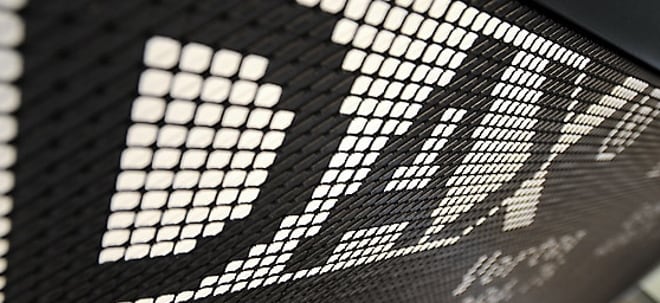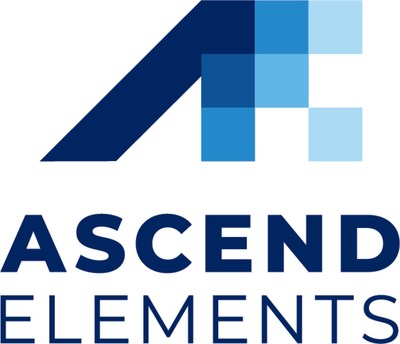New Study: Ascend Elements' Hydro-to-Cathode® pCAM Process Cuts CO2e Emissions Nearly 50% Compared to Traditional Battery Recycling
An independently reviewed Life Cycle Assessment of Ascend Elements' NMC 9.5.5 pCAM product finds a 49% reduction in carbon dioxide and 26% reduction in particulate matter emissions compared to traditional battery recycling.
WESTBOROUGH, Mass., April 22, 2025 /PRNewswire/ -- An independently reviewed Life Cycle Assessment (LCA) published today finds Ascend Elements' innovative Hydro-to-Cathode® direct pCAM synthesis process is significantly cleaner than traditional battery recycling methods – producing 49% lower carbon dioxide equivalent (CO2e) emissions and 26% lower particulate matter 2.5 (PM 2.5) emissions. By 2030, Ascend Elements aims to achieve 86% lower CO2e emissions and 94% lower PM 2.5 emissions through additional decarbonization efforts, including 100% renewable energy use in recycling and manufacturing operations, rail transportation of materials, and application of lower-carbon reagents during production processes. The study was conducted in accordance with the ISO 14040:2006 and ISO 14044:2006 standards and critically reviewed by Minviro with a panel of three independent LCA experts.
Ascend Elements' battery recycling technology cuts CO2e emissions by almost half compared to traditional recycling."Battery recycling is the most efficient way to source critical battery materials, but not all recycling technologies are the same. We've been developing our Hydro-to-Cathode® process since 2011 with a focus on efficiency, economics and emissions," said Eric Gratz, Ph.D., Co-founder and CTO at Ascend Elements. "This LCA demonstrates that our innovative processes are the cleanest and most efficient ways to return used battery materials to the domestic supply chain."
In addition to pCAM, the study also analyzed Ascend Elements' innovative process for recovery of lithium from recycled batteries and manufacturing scrap. Today, Ascend Elements' production of 1 kg of lithium carbonate (Li2CO3) emits just 2.3 kg of CO2e, which is 86% lower than spodumene mining (16.8 kg of CO2e per 1kg of Li2CO3) and 37% lower than Chilean brine extraction (3.6 kg of CO2e per 1kg of Li2CO3). With the company's decarbonization plans, it aims to reduce emissions to only 0.2 kg CO2e per kg Li2CO3 by 2030, which represents a 99% reduction compared to traditional methods.
PM 2.5 emissions are similarly reduced with Ascend Elements' innovative lithium recovery process. According to PM 2.5 emissions data in the LCA, Ascend Elements' Li₂CO₃ product is 97% less polluting than spodumene mining and 81% less polluting than Chilean brine extraction. By 2030, the company aims to reduce PM 2.5 emissions by 99.7% compared to spodumene mining and 98% compared to Chilean brine extraction.
A summary of the new LCA Study is available for download. Emissions data for the "traditional battery recycling method" is based on a published LCA study that used a combination of both pyrolysis and hydrometallurgy processes.
Ascend Elements operates one of North America's largest battery recycling facilities in Covington, Ga. A new lithium recovery line at the Georgia plant is expected to produce up to 3,000 metric tons of Li₂CO₃ annually. In Hopkinsville, Ky., the company is building an advanced Hydro-to-Cathode® pCAM manufacturing facility to produce engineered battery materials for up to 750,000 electric vehicle batteries annually. When operational in late 2026, the facility will be North America's largest pCAM manufacturer.
Founded in 2015, Ascend Elements is a leading provider of domestic critical minerals and engineered battery materials for the lithium-ion battery industry. The company produces sustainable Li2CO3 and NMC pCAM made from recycled battery materials. Ascend Elements' patented Hydro-to-Cathode® direct cathode precursor synthesis technology produces new pCAM material from spent lithium-ion cells more efficiently than traditional methods, resulting in improved economics and lowered carbon emissions.
![]() View original content to download multimedia:https://www.prnewswire.com/news-releases/new-study-ascend-elements-hydro-to-cathode-pcam-process-cuts-co2e-emissions-nearly-50-compared-to-traditional-battery-recycling-302433554.html
View original content to download multimedia:https://www.prnewswire.com/news-releases/new-study-ascend-elements-hydro-to-cathode-pcam-process-cuts-co2e-emissions-nearly-50-compared-to-traditional-battery-recycling-302433554.html
SOURCE Ascend Elements



